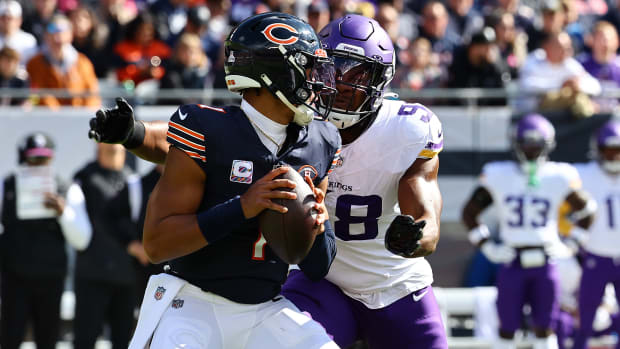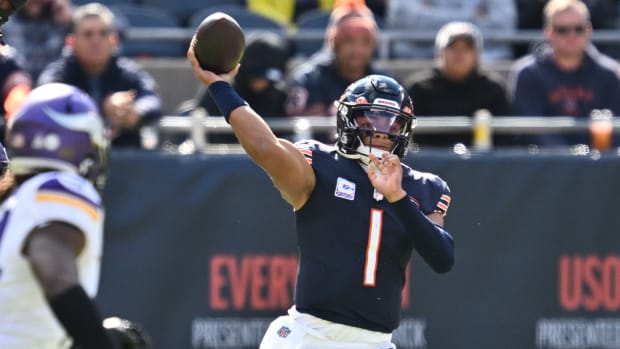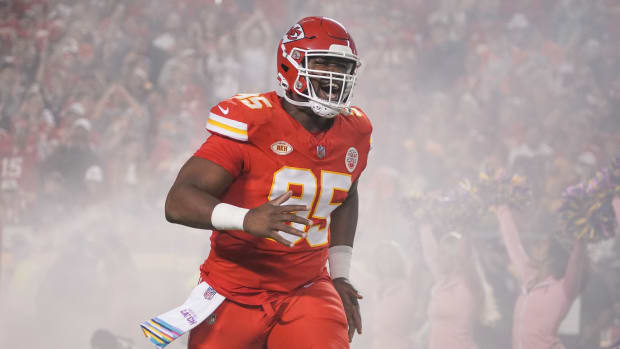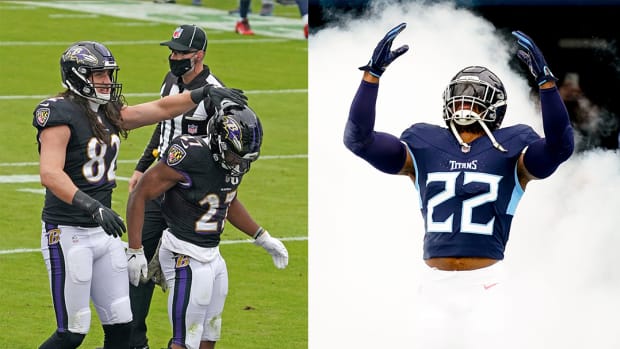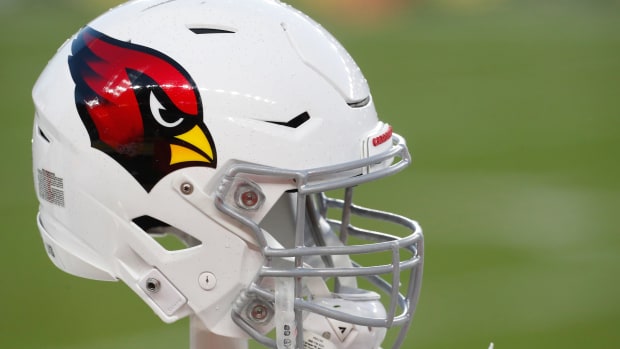Cam Newton: Worth Every Penny
This NFL season has brought me a steady stream of angry tweets/comments/e-mails from Panthers fans. Understandably so. In June, I wrote:
I think the Panthers will come to realize (if they don’t already) that they overpaid for Cam Newton. Entering his fifth season, Newton, 26, is essentially the same player now that he was entering his second season. He’s inconsistent in his mechanics and decision-making. He plays like someone who constantly has friends in his ear telling him that he’s the greatest. What he needs is a quarterbacks coach with the mettle to jump down his throat after a repeated mistake.
I think you also can’t blame the Panthers for overpaying for Newton. What choice did they have? Quarterbacks are rare in the NFL, even average ones. A team that’s been to the playoffs two straight years can’t plan to let its mid-20-year-old signal-caller leave soon via free agency. The only way to prevent that is to make him one of the five highest-paid quarterbacks in the game. That’s simply what an adequate NFL quarterback costs. Newton’s contract is not a testament to Newton—it’s a testament to the price of his position. It was the same with Ryan Tannehill, who got a new deal shortly before Newton did. (And by the way, Tannehill, who has improved each year in his career, is a much better player and long-term prospect than his Carolina counterpart).
Obviously, I was wrong. Newton deserves the MVP award that he’s about to get on Saturday night. He has propelled himself into the upper echelon of NFL quarterbacks. I’ve spent considerable time and energy this season studying and asking why and how.
I don’t regret my original criticism of Newton. There was only his 2011-14 film to analyze. In those seasons, he was inconsistent. This season, he steadied considerably. He still throws a few wild fastballs each game, most of them the result of lapses in mechanics. But that’s partly just the nature of being such a strong-armed talent. And here, Newton’s pros have vastly outweighed his cons. For as many fastballs as he misses, he dishes seven or eight big-time strikes. He makes throws that only four or five other QBs in the world can even attempt.
This isn’t what’s propelled him to superstardom, however. And neither is his running, which is a significant aspect not just of his game, but of Carolina’s entire offense. Even when Newton is not running the ball himself, the Panthers’ ground game is structured so that defenses must account for him. That changes the numbers equation in the box and forces linebackers and safeties to play slower. Newton’s legs are immensely valuable.
But what’s really propelled Newton into superstardom is his football IQ. We’ve seen it most pointedly in his increased workload at the line of scrimmage, which Jenny Vrentas brilliantly analyzed and explained earlier this season.
Wanting to learn more, at Panthers media night on Monday, I spoke with those who have been in the film room with Newton daily over the past years.
Not surprisingly, the common theme brought up was the expansion of options that he presents at the line of scrimmage. “We get into not just two play-checks, but at times three play-checks, four play-checks with him now,” said quarterbacks coach Ken Dorsey. “And there’s adjusting protections, at times changing protections entirely. There’s a freedom in the offense now for him to change things based off of what he sees.”
Newton’s development has been like drilling for oil: The first four years, he drilled through bedrock. Those of us on the outside could see only the same results: Newton playing very up-and-down football and repeating sloppy mistakes. This season the drill finally struck liquid gold. Those familiar with the inside of the drilling process were not surprised.
“Those prior seasons are what got us to here,” said backup quarterback Derek Anderson. “His preparation from Day 1 until now, just watching that progression has been awesome.”
In Vrentas’s piece, coach Ron Rivera told her, “We are in our fifth season but let’s don’t forget, [Newton] came in the league as a 20-year-old, having played only one year of major-college football. I think those first couple of years were a grace period, a learning period for him where he had to exhibit some growth and we saw it.”
I spent last week in Mobile, Ala., for Senior Bowl week, talking to various NFL coaches. Those most familiar with Newton said he’d always been a hard worker, particularly on the practice field. In the classroom, he showed great effort but not always inherent focus. That changed, however, over the last two years, and particularly this past year.
“His preparation has always been very underrated,” said Dorsey. “The notes he takes, the meticulous nature he goes through, the process has been similar [over the years], but the more you do it, the more you get into a groove and find what works best for you.”
It’s yet another example of why professional football is so fascinating. Football is a more intricate version of chess, and all the pieces are human beings.
I don’t expect this Newton mea culpa to earn me goodwill from Panthers fans. It shouldn’t. My forecast of Newton was incorrect. In the job I signed up for, incorrect forecasts result in a social media skewering. Fair game.
I hate being wrong, but not as much as I love seeing gifted athletes hone their craft. I admire the hell out of Cam Newton. Players like him are what make professional sports great.
Question or comment? Email us at talkback@themmqb.com.

































